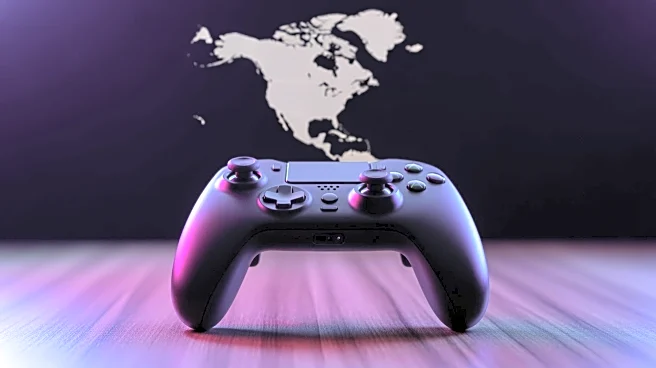What's Happening?
President Donald Trump has announced plans for an upcoming in-person meeting with Russian President Vladimir Putin, aiming to address the ongoing conflict in Ukraine. This meeting is expected to take place
in Budapest, with the goal of negotiating an end to the war. President Trump has indicated that the success of this meeting will depend on the outcome of recent high-level talks between Washington and Moscow. The U.S. is considering providing Ukraine with Tomahawk missiles, which could significantly impact the dynamics of the conflict by targeting Russian energy infrastructure. This move is seen as a strategic effort to pressure Russia into agreeing to a ceasefire. The meeting follows a history of diplomatic engagements where President Trump has used economic leverage, such as tariffs and sanctions, to broker peace deals in other global conflicts.
Why It's Important?
The potential meeting between President Trump and President Putin is significant as it could lead to a resolution of the prolonged conflict in Ukraine, which has had widespread humanitarian and geopolitical implications. The provision of Tomahawk missiles to Ukraine could alter the balance of power, potentially forcing Russia to reconsider its military strategy. This development is crucial for U.S. foreign policy, as it demonstrates a continued commitment to supporting Ukraine while also seeking diplomatic solutions. The outcome of this meeting could influence global oil markets, given Russia's reliance on energy exports, and impact international relations, particularly with countries like China and India, which have economic ties with Russia.
What's Next?
The next steps involve the preparation for the Budapest meeting, where President Trump is expected to leverage the possibility of secondary sanctions against Russia and its allies, such as China, if a ceasefire is not achieved. The U.S. administration will likely continue to coordinate with Ukrainian President Volodymyr Zelensky to ensure a unified approach. The international community will be closely monitoring the situation, as the outcome could set a precedent for future diplomatic negotiations involving major global powers.
Beyond the Headlines
This development highlights the complex interplay between military strategy and diplomatic negotiations in resolving international conflicts. The use of economic sanctions and military aid as tools of diplomacy underscores the multifaceted approach required to address modern geopolitical challenges. The potential success of this meeting could reinforce the role of the U.S. as a key mediator in global conflicts, while also raising questions about the ethical implications of using military aid as leverage in peace negotiations.









